Hello and welcome back to ParentSounds. Whether you are receiving this as an email in your inbox, or checking it out later on via our homepage, we're happy you're here!
In case you're new to ParentSounds, or missed any of the previous editions of the ParentSounds podcast, you can get caught up on our previous episodes here:
You can also read the newsletter version of each of our previous interviews, including the pre-podcast ones, on our homepage: https://parentsounds.substack.com
Before we get started today, I have a small request from the ParentSounds publisher’s suite.
Like everything else on the internet, ParentSounds depends on the almighty algorithm to gain more visibility and exposure. You know where I’m going with this.
If you’ve been enjoying ParentSounds, or even if you just subscribed recently and you like what you see so far, could I trouble you to move your cursor a little further down that page and click the like button?
Or, even better yet - share this episode with a friend who you think might enjoy it:
If you’re a Substack user, please also feel encouraged to make use of the comments section under each post. So much of what we want to do with ParentSounds is to encourage parents to connect, support, and inspire each other around the topic of being creative during this crazy time in our lives. So if you’ve got a link you want to share to your own creative work, or even if you just vibe with something that was said in one of our interviews and you want to share what you’re thinking/feeling about it, comments help us both to grow our community and also to bring it closer together.
Whew. With all that now out of the way - I’m really excited about our latest parent profile. It’s of Bryce Seto, a business executive and father of two young girls based in Toronto. Bryce is also the author of Bird’s Eye View, a Substack newsletter which combines perspectives on parenting, mental health, and trying to do lots of things at the same time.
What I appreciate first and foremost about Bird’s Eye View is the lighthearted way that Bryce writes about his personal story of being diagnosed with borderline personality disorder several years ago, and his efforts since then to operate at a high level in his daily life while managing his mental health diagnosis. Bryce’s stories always make me laugh while at the same time inspiring me to pursue a similar level of self-awareness and self-improvement.
What also strikes me about Bryce, both from his newsletter as well as my conversation with him, is the sheer amount of stuff this guy does. When I was initially discovering Bird’s Eye View I was especially drawn in by his Ultimate Guide to Productivity, which is a hilarious and pretty real take on what it’s like to try to get other things done in your life while you’ve got one or more small children running around.
I asked Bryce to talk to us because I’ve been wanting to dig into the topic of men’s mental health for awhile in this space, and because his life as an executive, MBA student, writer, and papa dealing with BPD felt like a good example of the kinds of stories we want to elevate here. Bryce is a parent who is combining his mental health journey with a creative passion while also making time for everything else he’s got going on. It’s an example of how many different kinds of roles creativity can play in one’s life with kids, and how creative outlets can also help us to navigate the other challenges we all face.
Instead of also having a newsletter edition we’re going to do things a bit differently this time and share the transcript of our interview with Bryce below. The next time we publish you’ll also hear from Bryce directly in our first ever ParentSounds guest post.
Please welcome Bryce Seto.
ParentSounds: Hey Bryce! Tell us a bit more about who you are and what kind of creative work you do.
Bryce Seto: Yeah, so I'm Bryce Seto. I'm a father of two girls, ages almost five, so four and three, 15 months apart. I live in Toronto, Canada. I'm a business executive and I'm also in school doing my MBA at the moment as well, and I'm a writer. I have a Substack, which is BryceSeto.com.
PS: I want to dig a bit into the origin story around Bird’s Eye View. What made you want to write about your experiences as a parent, and with mental health generally?
I started my publication this April, and one of the things that I really wanted to do was just to share some of my experiences, especially the first motivator for me was sharing a bit of my own mental health journey. I was diagnosed with borderline personality disorder about seven years ago, and I found when I was diagnosed, there weren't a lot of people talking about it, especially people that look like me or men in general. And so that was my initial motivation: I want to get this out, I want to talk about it, I want to share my experience, maybe it can help others with their experience when it comes to mental health. And once I started the platform and started to share, and I've been writing like twice a week, you know, those themes have come out. It's amazing when you start a creative endeavor, pieces of you come out that you didn't really expect.
And then another major theme, of course, is parenting and how those two things overlap. I'm trying to capture some of that experience and for me. A lot of it is about trying to become, or trying to avoid what I don't want to become, which is like, I don't want to be that father that is shut down and super stoic and like not sharing my feelings. I want to show my girls, I want to show my family that you should be talking about this stuff. And that's hard, like it's not a natural thing for me. I don't come from that environment.
So it's kind of like, you know, I learned when I was in therapy, I did a group therapy, DBT, Dialectical Behavioral Therapy, which is like a good treatment for BPD. One of the core modules we went into was opposite action, which is essentially like, you know, do the opposite thing that your body and your mind is telling you to do, like the opposite thing that you want to do. Like it happens in depression a lot. It's like, I'm very depressed. I want to stay inside and cover myself with blankets. When the opposite action is telling you, hey, you know what, take those blankets off, go outside, go for a run.
So this to me is my opposite action. Instead of retreating and hiding in my own shame, being vulnerable and opening up about it. And it's been very helpful for me. It's been part of my own therapy journey, being able to share this as my way of journaling. And it's been able to build a really amazing network and connections of people that I wouldn't have been able to otherwise.
PS: You’re trying to accomplish a lot of ambitious goals while also having young kids at home, which is something I can really relate to. What motivates you to want to keep developing that side of yourself – as opposed to just like, disappearing into work and family life for a few years and letting everything else go? The latter is definitely something I’ve considered. It sounds easier.
I think like, there's this element, like for me, I feel like naturally I've always been a creative. I've had this need of expression. I've acted, I've performed, I've done improv comedy, I've written. And with kids, you know, there's something about creative pursuits that I think teaches them so much. I want them to do that. I want them to find their own sandbox to fail and work and iterate. And I think letting them see you do that can be so powerful.
Part of it is the writing but I'm also very intentional to not take it super seriously. If you go to it, you could see like – I draw my own pictures. And I want to show them that too. It's like, this is me as an artist. It's not a very good artist, but this is me and I'm doing it. And I want them to have that same freedom to be like, oh, I'm not good at art. It's like, no, you are an artist, it doesn't matter. Don't judge the work, do the work. And I want them to show that and feel safe in doing that. We do that a lot at home. One of my favorite things to do with my little girls for example is just to make up songs. I'm a terrible singer, but we make up songs and have fun with it. And every day we'll make up a stupid little song while we're getting dressed or eating or whatever. And I want to have that energy in my household.
So for me in having my creative pursuits, which right now is this newsletter, it’s to make sure that I'm continuing to invest in that and prioritizing that. Because like you say, it would be very easy for me to stick to like, reading financial statements or something. And so it helps to create that balance that I need in my life.
So I think for me it's all about having that balance and showing my girls that life's not that serious, we should have fun with it and you can have fun in public and it's okay. Like who cares what people think let's all get out there and dance and see what happens.
PS: Tell us more about what it's like for you from a practical perspective to juggle your MBA, your newsletter, and everything else you’ve got going on while also making time for your partner and your family and just doing the sheer amount of work that’s involved with having multiple children at home. This is something we ask everybody and the answer is always different. How do you do it?
Most days feel like we're juggling chainsaws that are on fire. But the other thing is my partner is in law school, so she's drowning as well with the amount of reading and schoolwork that entails. You know, I try my best every day to stay as organized as I can and check things off my list. There's certain things at work that need to get done every day. So I need to block off two to three hours to get those things done. And there's a certain amount of reading I need to do for my MBA, so I'll block off two to three hours to get those done.
But it's about understanding and knowing like, hey look, we're in the thick of it now. We're gonna be in the thick of it for a few years. So let's do everything we can to support each other and know that there's a light at the end of this tunnel.
And then the one thing I'm not great at that I'm trying to get better at is just leaning on other people. I don't have any family here, so we don't have that family support system, but we do have a lot of really good friends. I have really good classmates, and letting them know, like, hey, look, I'm drowning right now, guys. And being able to ask for help and realize you don't have to be a martyr. You don't have to take everything on, and you're gonna fail at everything if you try to do that. So seeing what can you delegate, what can you lean on people for and catch up after, and trying to get people to understand, like, yeah, I have these kids so if you can help me out with this I’d really appreciate it. Just knowing like it's stressful but you're gonna make it through we're gonna survive it'll be okay.
PS: What advice would you give to parents who want to feel more creatively fulfilled but might not have found an outlet for that just yet?
I think a lot of it comes from self-awareness and figuring out what is it that speaks to you as an outlet. It's really hard as a parent because of time, but if you can prioritize and make that time for you to just try things, and it could be anything. In Toronto we have the Second City Improv School, the renowned comedy club. I did a whole year there of doing improv comedy. And that was a really good outlet for me.
But writing has always been like a natural thing that I've gravitated towards. And so I think if you don't know what that is, take the time to explore and find it. Like take classes, prioritize it, try other things. And then it's just about figuring out what it is you want to say and how you want to say it through that outlet.
To me, I think that's such a big part of creativity. And I think parents in general have so much to share. And there's a struggle that all parents can relate to. So it's like, what is it? How do you access that? How do you share it? And I think there's also this element of like, you know, there's this emotional awakening. I definitely felt it when I had kids. I remember when I was um, I was in therapy for a long time before I even had kids and I was so closed off. I would literally sit in therapy and we would do these exercises to try to make me cry. I forgot how to cry. I was like a mid-to-late 20s male who had no idea how to access that emotion.
And the therapist would actually recommend content to sit and watch and sit with it and see if I could feel that emotion. And it was hard. It was a very difficult thing. And then I had my first kid and I balled like a baby. And I haven't stopped crying since. You know, now that I have two little girls, there's this emotional awakening that's happened. And I think that's special. So how do you channel that to keep cultivating and sharing it? And for me, that's writing. But I think for other parents, it's like, there's something happening there. How do you access it? What is that voice that you have now that you can start to spread and share with the world?
PS: Last question - in what ways do you think becoming a parent has contributed to your desire to write and be creative over the past years?
Yeah, I think there's an element, and we talked a little bit about showing your kids, instead of telling them you can be anything, leading by example. For me, in my relationship with creativity, I think it's important to really embrace who I am and myself. And it's really easy, I think, as you get older to push your creative pursuits or your creative side to the side and be like, you know what, I got to focus on these Excel spreadsheets and not think about playing the guitar or writing or whatever that is. And I think for me to be the best parent I can be, I need to be the best version of myself that exists. So I need to accept like, hey, I have this, whatever that gene is that makes me need to express myself.
It's a form of self-awareness and self-acceptance, right? I think by doing that, it gives your kids permission to do that for themselves. Because I want that for them, no matter what it is that they feel or whatever ignites that fire within them. I want them to relentlessly and unapologetically be able to pursue that. So I have to show them too. Like, “hey, look, this is my thing. Let's find your thing and let's go after it.”
Thanks again to Bryce Seto for a really nice conversation. As our link for this week, I’m going to encourage you all once again to check out and subscribe to Bryce’s Substack Bird’s Eye View, which you now know all about :-)
I’ll close with a live look-in from today’s ParentSounds HQ:
Thanks once again for reading and listening, and see you next time.


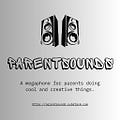




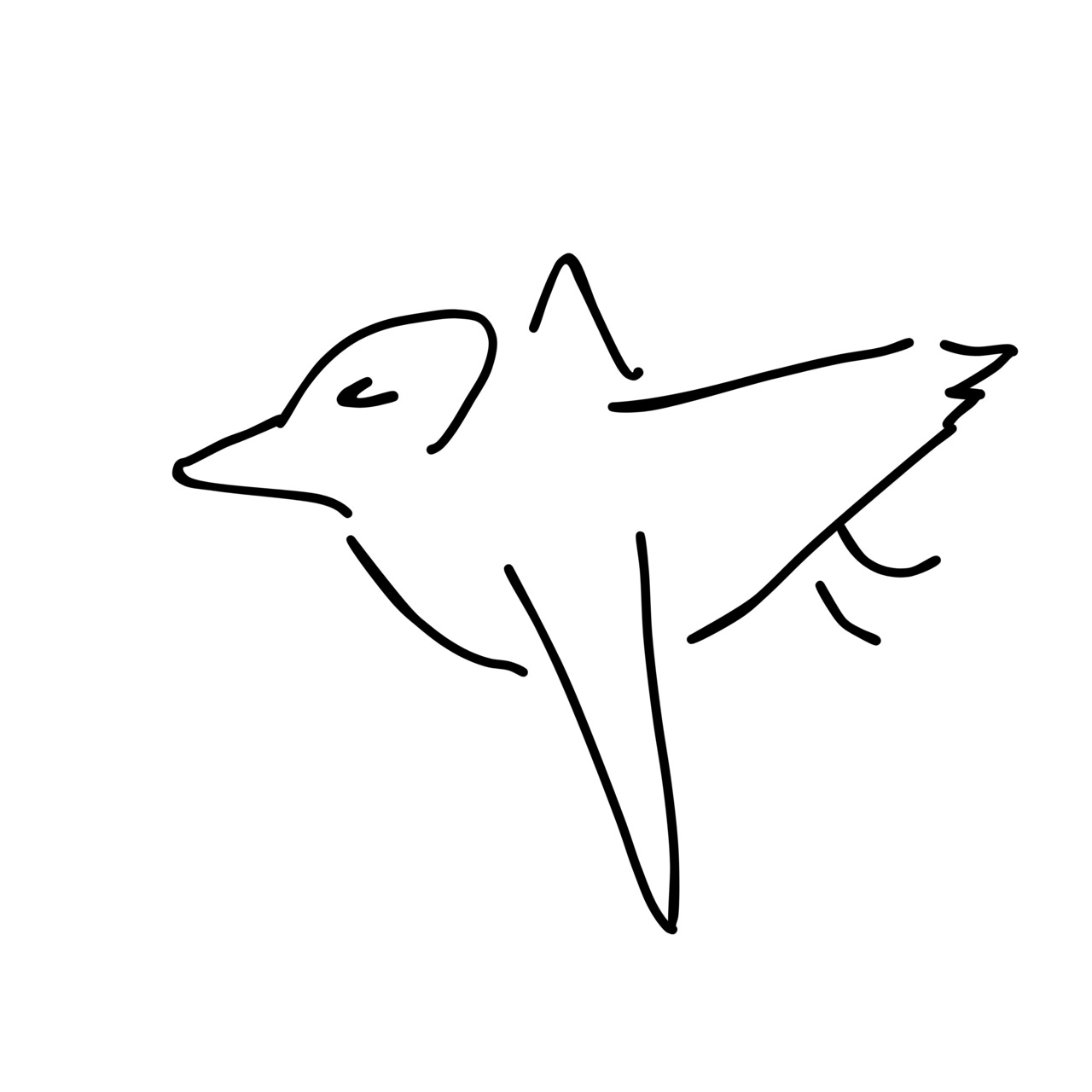

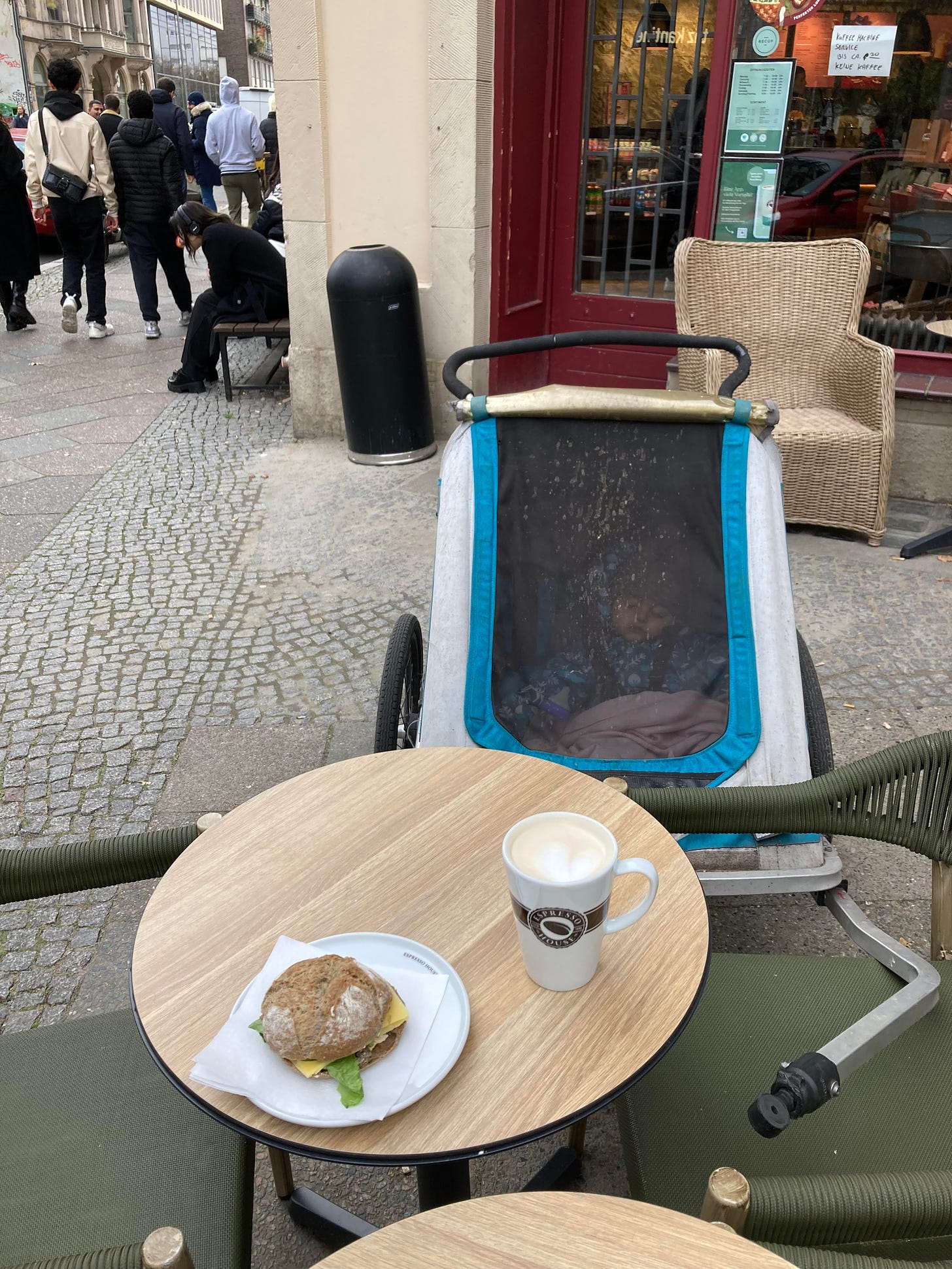



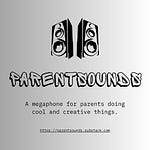
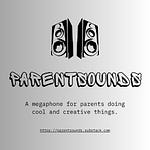
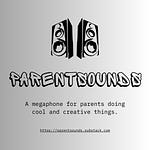
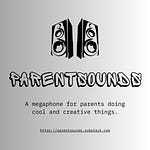
ParentSounds Podcast 04: Talking About Mental Health